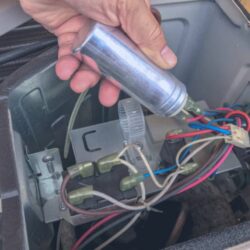The Importance of a Working AC Compressor

When the Colorado summer heat hits Thornton and surrounding areas, there’s nothing worse than realizing your AC isn’t blowing cold air. If you’ve ever walked into your home expecting refreshing relief only to be greeted by a wave of warm, stuffy air, chances are your AC compressor is the culprit. At Pure Air Solutions, we’ve helped hundreds of families and homeowners navigate this very problem, and we’re here to help you understand what’s going on—and what you can do about it.
The compressor is basically the heart of your air conditioning system. When it’s not working, your whole system struggles—or fails completely—to keep your home comfortable. Let’s dive into the nitty-gritty of why this happens and, more importantly, how to get your cool air back without breaking a sweat.
How the AC Compressor Works
Before we get into the problems, let’s take a second to talk about how the AC compressor actually works. This component lives in the outdoor unit and plays a major role in cooling your home. It compresses refrigerant (basically the lifeblood of your AC system), turning it from a gas into a high-pressure liquid that moves through the coils to absorb and release heat. This cycle keeps the air inside your home crisp and comfortable.
If the compressor doesn’t turn on, this whole process comes to a halt. No pressure? No cooling. No cooling? No comfort. It’s that simple—and that frustrating.
Top Warning Signs of AC Compressor Failure
Your system won’t always stop working without warning. In fact, most compressors try to tell you they’re struggling long before they completely shut down. Here are some of the red flags we’ve seen again and again at Pure Air Solutions:
- Your energy bill is mysteriously higher than usual
- The AC is blowing warm or lukewarm air
- You hear strange sounds—buzzing, clicking, or clanking—from your outdoor unit
- Airflow feels weaker than normal
- Your AC keeps tripping the breaker
- The outside unit feels extremely hot or icy
If you notice any of these issues, it’s best to call in the pros before things get worse (and more expensive).
Common Reasons Your AC Compressor Won’t Turn On
There are a handful of reasons your AC compressor might be refusing to do its job. Here’s a rundown of the most common ones we encounter in Thornton homes:
Thermostat Malfunctions
Sometimes, it’s not your compressor that’s the problem—it’s your thermostat. If your thermostat isn’t working properly or sending the right signals, your compressor might not know when to turn on. That’s like trying to play a game without a referee—nothing moves.
Electrical Issues
Fuses, circuit breakers, and wiring—oh my! Electrical problems are a leading cause of compressor failure. A tripped breaker or blown fuse can shut the whole system down, and damaged wiring can be a safety hazard.
Faulty Capacitor
The capacitor gives your compressor that first push to get going, like a jump-start. If it’s bad, your compressor won’t even get a chance to try. These little guys wear out over time and usually need a professional to diagnose and replace.
Defective Contactor
This small switch controls the flow of electricity to your compressor. When it goes bad, it can either block power completely or allow too much power through—both of which can cause the compressor to stay off.
Low Refrigerant Levels
When refrigerant levels dip too low (often because of a leak), your compressor may shut down to avoid damage. It’s kind of like your system’s way of saying, “I can’t do this safely, so I’m not going to try.”
Compressor Motor Failure
Just like any other motor, the compressor motor can fail due to age, wear and tear, or electrical faults. When that happens, you’re looking at a major component replacement—or possibly a new unit.
Dirty or Blocked Condenser Coils
Heat can’t escape properly when coils are dirty or blocked by debris. That causes your compressor to overheat and eventually shut off.
Frozen Evaporator Coil
Low airflow or refrigerant issues can cause your evaporator coil to freeze up. When that happens, the system might shut off the compressor to avoid damaging itself further.
Risks of Ignoring Compressor Problems
We get it—life gets busy. But letting compressor issues slide can turn a manageable repair into a full system replacement. An AC compressor that’s constantly struggling can spike your energy bills, damage other parts of the system, or completely fail when you need it most. Plus, if refrigerant leaks are involved, it could pose environmental and health risks.
Ignoring the signs is like driving around with your check engine light on for months—it might keep running for a while, but eventually, it’s going to leave you stranded.
Why DIY Isn’t the Solution for Compressor Issues
It might be tempting to tinker with your AC system, especially when it’s hot out and you want a quick fix. But here’s the truth: compressor issues are rarely something you can handle with a screwdriver and a YouTube video.
These systems involve high-voltage electricity, chemical refrigerants, and complex mechanical parts. Without proper training and tools, you risk making the problem worse—or even injuring yourself. That’s why we always recommend calling a licensed HVAC technician to handle compressor-related repairs.
The Best Recommendation: Call a Professional HVAC Technician
Your best move? Call in a pro—like our experienced team at Pure Air Solutions. We’ve seen every AC issue under the sun, and we know how to diagnose, repair, or replace your compressor quickly and safely.
From refrigerant leaks to electrical troubleshooting to full compressor replacements, we’ve got the tools and expertise to get your home cool again without the stress. Don’t play guessing games with your comfort.
Professional Maintenance Tips for Compressor Longevity
If you want your AC compressor to live a long and healthy life, here are a few things to keep in mind—all best handled by your HVAC technician during regular visits:
- Check refrigerant levels to catch leaks early
- Clean and inspect condenser coils for proper airflow
- Test and replace worn capacitors and contactors
- Verify electrical connections and controls
- Inspect compressor motor for wear or overheating
- Ensure the thermostat is calibrated and functioning
- Clear away debris around the outdoor unit
These preventative steps can extend your system’s life and save you from costly surprises during peak cooling season.
Repair vs. Replacement: How Professionals Can Help You Decide
Sometimes a compressor repair will do the trick—but not always. If your system is older (10–15 years), out of warranty, or if repairs are piling up, it may be smarter to consider a full replacement. Newer systems are quieter, more energy-efficient, and better for the environment.
Our team at Pure Air Solutions can walk you through the pros and cons of both options. We’ll help you weigh costs, warranty coverage, system age, and energy efficiency to find the best solution for your home and budget.
Stay Cool and Safe with Expert Help
Compressor issues are frustrating, but you don’t have to suffer through the heat or struggle to figure it out yourself. When your AC stops cooling or the compressor won’t turn on, trust the experienced pros at Pure Air Solutions to get things running again—fast, safe, and efficiently.
Don’t let a failing compressor steal your comfort—reach out to Pure Air Solutions today and get your cool back!




